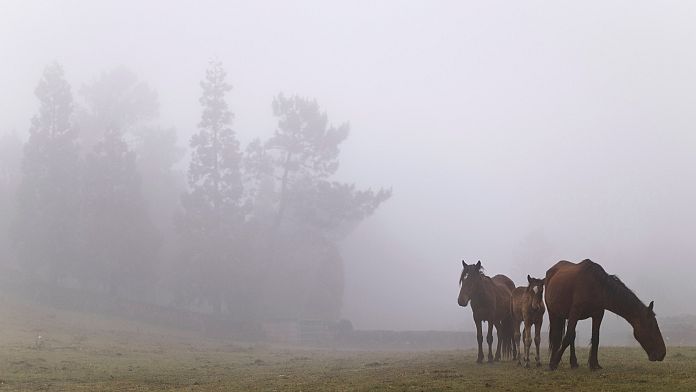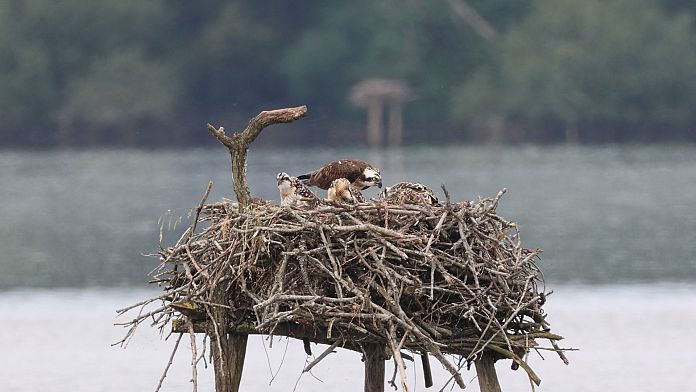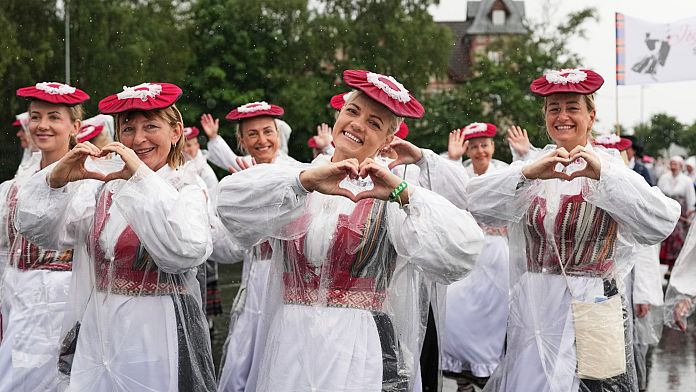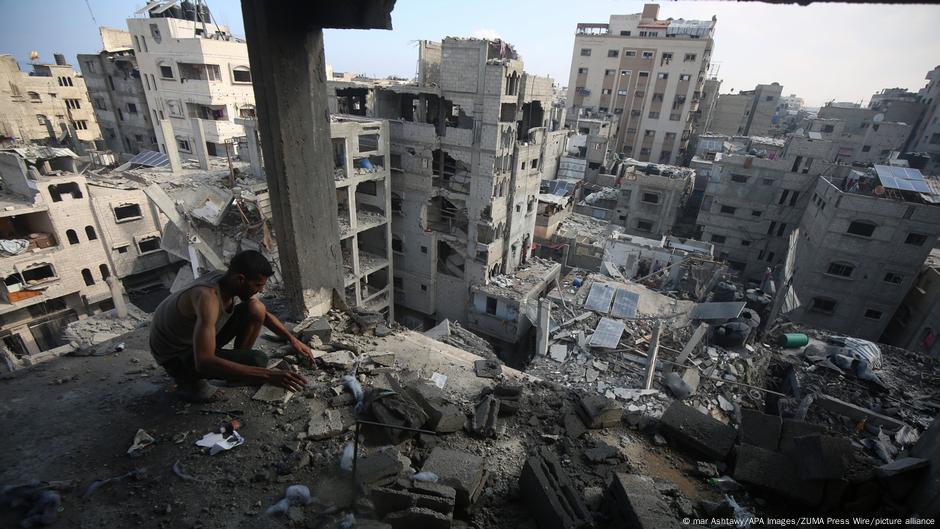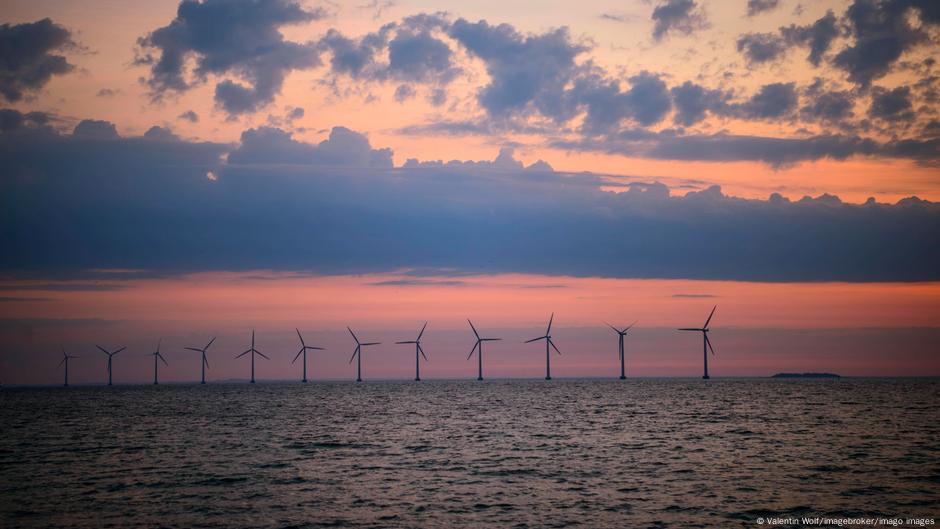First round of Israel-Hamas talks over ceasefire ends inconclusively, say Palestinian sources
BRICS nations express concern over Gaza, call for immediate ceasefire
Israeli PM Netanyahu to meet US President Trump at White House
Here are the latest updates from around Gaza, Israel and the wider Middle East on Monday, July 7.
Skip next section US envoy encouraged by Lebanon’s take on Hezbollah disarmament07/07/2025July 7, 2025
US envoy encouraged by Lebanon’s take on Hezbollah disarmament
US Special Envoy Thomas Barrack on Monday said he was “unbelievably satisfied” with Lebanon’s response to a US plan for disarming the Iran-backed Lebanese militia Hezbollah.
The militant Islamist group recently vowed that it would not give up its weapons, yet Beirut gave a detailed seven-page report to the US in response to Washington’s June 19 proposal for disarming the group.
After meeting with Lebanon’s President Joseph Aoun, Barrack told reporters: “What the government gave us was something spectacular in a very short period of time. I’m unbelievably satisfied with the response.”
In a warning to the impoverished Middle Eastern country, Barrack had previously said Lebanon risks being “left behind” by developments in the region.
US Envoy Barrack also called for Hezbollah to become a purely political player in the region, saying the group “needs to see that there is a future” for it in the Middle East.
Hezbollah joined attacks on Israel shortly after Hamas launched its October 7, 2023, attack on Israeli civilians, with Israel regularly returning fire into Lebanon.
https://p.dw.com/p/4x4QxSkip next section Israel launches fresh strikes on Houthis07/07/2025July 7, 2025
Israel launches fresh strikes on Houthis
Jon Shelton
Israel on Monday launched attacks at Houthi targets in Yemen hours after a Greek-owned, Liberian-flagged cargo ship — the Magic Seas — was attacked near the Yemeni port of Hodeidah late Sunday.
Israeli air forces on Monday struck targets in ports of Hodeidah, Ras Isa and Salif, as well as a power plant at Ras Qantib.
“These ports are used by the Houthi terrorist regime to transfer weapons from the Iranian regime, which are employed to carry out terrorist operations against the state of Israel and its allies,” read an Israeli military statement.
Israel also struck the Galaxy Leader, a vessel seized by the Houthis last November. The group had been using it to track international maritime traffic and plan further attacks.
Yemen’s Houthi rebels, who are thought to be behind the attack on the Magic Seas, fired two missiles at Israel in response to the strikes. Israeli military efforts to intercept the missiles appear to have failed, though no injuries have been reported.
The attack on the Magic Seas was reportedly carried out with bomb-laden drone boats, signaling a potential escalation of Iranian involvement. The Islamic Republic is a backer of the rebel Houthis, who began attacking Israel in response to its military campaign against Hamas in retribution for Hamas’ October 7, 2023, attacks on Israel.
Both the US and Israel have attacked Houthi strongholds in an effort to ensure freedom of movement for nearly
As Gaza ceasefire talks loom and the world waits to see how Iran will react to the recent US bombing of its nuclear program, Israel issued a warning to both the Houthis and leaders in Tehran.
“What’s true for Iran is true for Yemen,” said Defense Minister Israel Katz: “Anyone who raises a hand against Israel will have it cut off. The Houthis will continue to pay a heavy price for their actions.”
https://p.dw.com/p/4x4AGSkip next section Israel to issue conscription notice to 54,000 ultra-Orthodox Jewish men07/07/2025July 7, 2025
Israel to issue conscription notice to 54,000 ultra-Orthodox Jewish men
The Israeli army on Sunday said it will begin sending conscription notices to 54,000 ultra-Orthodox Jewish men through July, who were exempt from military service until now.
“The army will begin this week issuing summons to complete the enlistment process for ultra-Orthodox men whose status as yeshiva (religious seminary) students is no longer valid following the expiration of the previous legal arrangement,” said a military statement.
“The military will continue efforts to expand enlistment among the ultra-Orthodox public, while working to ensure the best possible conditions that respect their unique way of life,” it added.
This move is highly controversial and could spell trouble for Netanyahu’s coalition government, which includes representatives from the ultra-Orthodox community as well.
An arrangement dating back to 1948 exempts the ultra-Orthodox, or Haredi (God-fearing) Jews who are dedicated to religious studies, from military service.
Around 66,000 men currently fall under the exemption.
Israel’s Supreme Court has often challenged this status since the 2000s. Since June 2024, the ruling government has been under pressure from the judicial system to start drafting Haredi men.
Ultra-Orthodox draft ruling sparks tensions in Israel
To view this video please enable JavaScript, and consider upgrading to a web browser that supports HTML5 video
https://p.dw.com/p/4x3g9Skip next section Netanyahu to meet Trump at White House07/07/2025July 7, 2025
Netanyahu to meet Trump at White House
Israeli Prime Minister Benjamin Netanyahu left on Monday to meet with US President Donald Trump at the White House in Washington DC.
“This is my third visit with (US President Donald Trump) since he was elected over six months ago,” Netanyahu told reporters at Ben Gurion Airport near Tel Aviv before his departure.
Urmărește cele mai importante știri
Netanyahu also plans to meet US government officials as well as other Republican and Democratic leaders.
What can be expected of Netanyahu’s US trip?
To view this video please enable JavaScript, and consider upgrading to a web browser that supports HTML5 video
On Sunday, Trump had said that a ceasefire and hostage release deal could possibly be reached this week.
“We are working to achieve the much discussed deal, on the conditions that we have agreed to,” Netanyahu said, referring to a US proposal. Hamas has requested some amendments but agreed to the proposal in principle.
Experts and analysts believe that Israel and Hamas will be able to overcome their differences to reach a deal.
Donald Trump claims peace in the Middle East is imminent
To view this video please enable JavaScript, and consider upgrading to a web browser that supports HTML5 video
https://p.dw.com/p/4x3foSkip next section BRICS leaders express ‘grave concern’ about Gaza situation07/07/2025July 7, 2025
BRICS leaders express ‘grave concern’ about Gaza situation
Leaders of the BRICS group of nations expressed “grave concern” about the situation in Gaza after their meeting on Monday.
“We reiterate our grave concern about the situation in the Occupied Palestinian Territory, with the resumption of continuous Israeli attacks against Gaza and obstruction of the entry of humanitarian aid into the territory,” they said.
The group called for adherence to international law while also encouraging an immediate ceasefire, withdrawal of Israeli troops from Gaza and the release of all detainees and hostages.
They also condemned the Israeli and US military strikes on Iran.
https://p.dw.com/p/4x3QcSkip next section First round of Israel-Hamas ceasefire talks ends indecisively: sources07/07/2025July 7, 2025
First round of Israel-Hamas ceasefire talks ends indecisively: sources
The first round of ceasefire talks between Israel and Hamas in Doha, Qatar, ended inconclusively, Palestinian sources close to the matter said on Monday.
“After the first session of indirect negotiations in Doha, the Israeli delegation is not sufficiently authorized … to reach an agreement with Hamas, as it has no real powers,” the sources told Reuters news agency.
The BBC reported that the talks took place in two different buildings, and lasted for about three and a half hours.
The two sides communicated through Qatari and Egyptian mediators, but to no avail. Talks are expected to resume again on Monday.
https://p.dw.com/p/4x3NPSkip next section Welcome to our coverage07/07/2025July 7, 2025
Welcome to our coverage
Tanika Godbole with AP, AFP, dpa, Reuters | Elizabeth Schumacher Editor
Hello and welcome to DW’s coverage of developments in the Middle East on Monday, July 7, 2025.
Talks between Israel and Hamas in Doha, Qatar, on Sunday about a possible ceasefire ended inconclusively, Palestinian sources close to the matter said.
Israeli Prime Minister Benjamin Netanyahu is flying to Washington for talks with US President Donald Trump, who suggested on Friday that there “could be a Gaza deal” next week.
https://p.dw.com/p/4x3M2Tanika Godbole Multimedia Journalist based in New DelhiJon Shelton Writer, translator and editor with DW’s online news team.Send us your feedback
Sursa: DW
